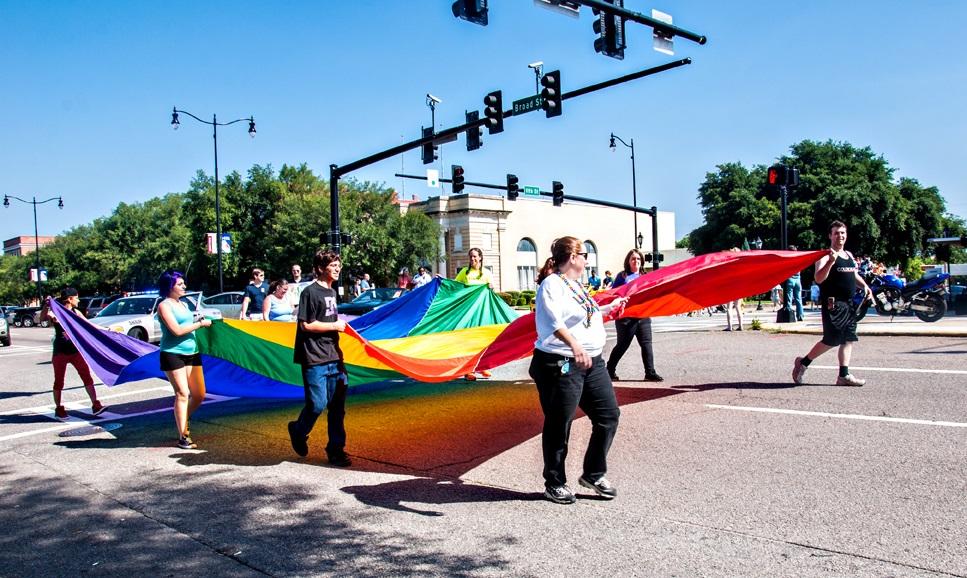Georgia Restricts LGBTQ+ Rights
Has Georgia taken a decisive step backward in human rights? The nation's parliament has approved legislation severely restricting LGBTQ+ rights, mirroring similar measures enacted in neighboring Russia. This move has ignited a firestorm of controversy, raising concerns about the future of equality and freedom of expression in the country.
On Tuesday, September 17th, in Tbilisi, the Georgian Parliament delivered a resounding blow to LGBTQ+ rights, passing a sweeping family values law. This legislation, echoing restrictive measures recently adopted in Russia, curtails the rights of LGBTQ+ individuals and imposes significant limitations on their ability to express themselves and live freely. The law has sparked international condemnation, with human rights organizations and the European Union denouncing it as a dangerous regression for human rights in Georgia. This decision has far-reaching implications, potentially affecting everything from public gatherings and educational materials to the very definition of family within Georgian society.
| Name: | Shalva Papuashvili |
| Position: | Speaker of the Parliament of Georgia |
| Political Party: | Georgian Dream |
| Key Action: | Announced the initiation of the "family values" bill on June 4th. |
| Reference: | Parliament of Georgia |
The law, officially titled On Family Values and the Protection of Minors, passed its third and final reading on Tuesday. This marks the culmination of a legislative process that began months prior, when the ruling Georgian Dream party first introduced the bill. The laws broad language and vaguely defined terms raise concerns about its potential for discriminatory application. Critics argue that the legislation could be used to stifle dissent and further marginalize LGBTQ+ individuals within Georgian society.
Among the most concerning aspects of the new law are its restrictions on gender transitions and public displays of LGBTQ+ symbols. The law effectively bans gender-affirming care, potentially denying transgender individuals access to essential medical services. Furthermore, it could outlaw Pride marches and even the display of the rainbow flag, symbols of LGBTQ+ identity and solidarity. These provisions raise serious questions about freedom of expression and the right to peaceful assembly in Georgia.
The vote on the "family values" bill was boycotted by several opposition parties, highlighting the deep divisions within Georgian politics regarding LGBTQ+ rights. While the ruling Georgian Dream party argues the legislation is necessary to protect traditional family values and children, opponents view it as a cynical attempt to appease conservative elements of society and distract from other pressing issues facing the country. The boycott underscores the contentious nature of this debate and the challenges ahead for those seeking to protect and advance LGBTQ+ rights in Georgia.
International organizations have been quick to condemn Georgia's new law. UNAIDS, in alignment with the UN Office of the High Commissioner for Human Rights, has expressed deep concern about the discriminatory nature of the legislation, warning that it will impose restrictions on education and public life for LGBTQ+ individuals. The European Union has also voiced strong criticism, raising concerns about Georgia's commitment to human rights and its aspirations for closer ties with Europe. These international reactions highlight the potential geopolitical ramifications of Georgias decision and the growing pressure on the government to reconsider its course.
The parallels between Georgias new law and similar legislation enacted in Russia are striking. Both countries have increasingly sought to restrict LGBTQ+ rights under the guise of protecting traditional values. This trend raises concerns about a broader regional shift towards intolerance and the erosion of human rights protections for LGBTQ+ individuals. The Georgian governments decision to follow Russias lead is particularly troubling given Georgias stated desire for closer integration with the West and its aspirations for EU membership.
The passage of this law is a significant setback for LGBTQ+ rights in Georgia. It represents a missed opportunity for the country to demonstrate its commitment to inclusivity and respect for human rights. The long-term consequences of this decision remain to be seen, but it is clear that the fight for equality in Georgia has become even more challenging. The international community will continue to monitor the situation closely and advocate for the rights of LGBTQ+ individuals in Georgia.
The family values law raises fundamental questions about the future of human rights in Georgia. It remains to be seen how the legislation will be implemented and what its ultimate impact will be on the lives of LGBTQ+ Georgians. However, one thing is clear: the fight for equality and freedom of expression in Georgia has entered a new and uncertain chapter.
/cloudfront-us-east-1.images.arcpublishing.com/gray/RZCTJ3M7FBENVOOY5G6THPMMPY.JPG)

